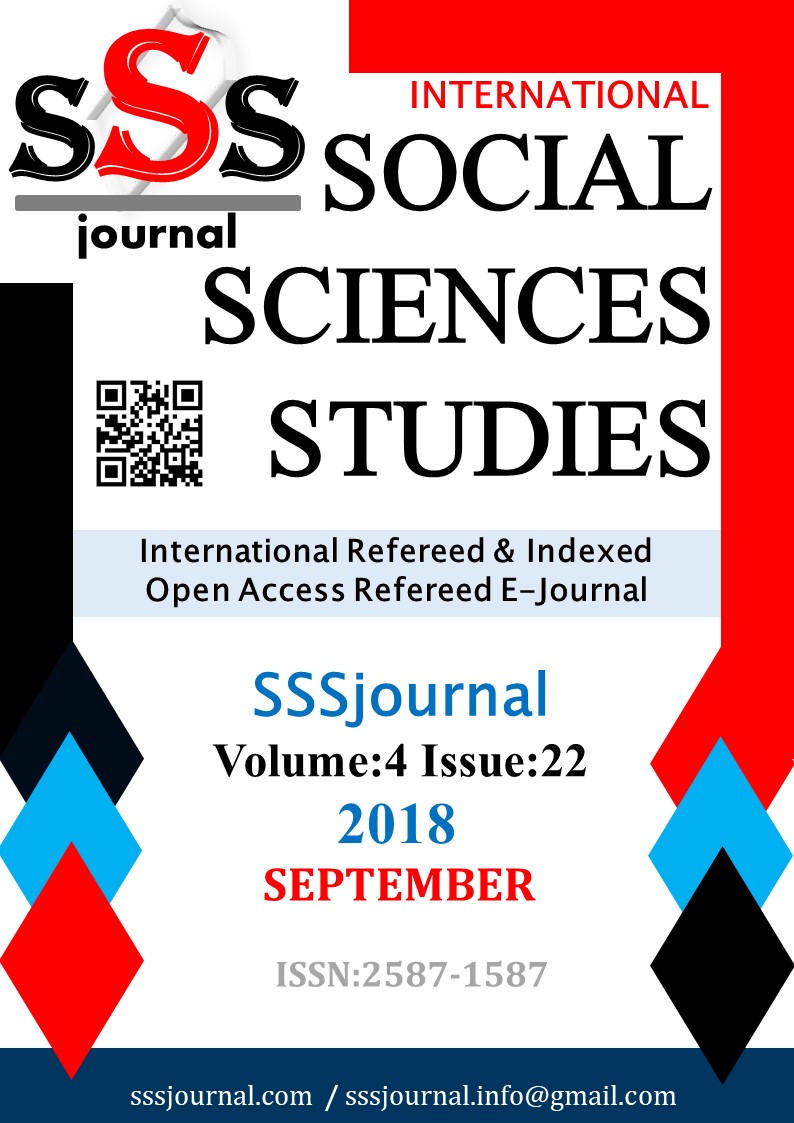Author :
Abstract
Yetişmekte olan bireyler, yaşadıkları çağın ve yaşayacakları dönemin ihtiyaçlarına uygun yetişmelidir. Ancak eğitim sisteminde yalnızca bilgi aktarma konusu hedef kazanım olduğunda; bireyin olgunlaşması ve bir takım beceriler kazanması noktası yeterince ciddiye alınmamaktadır. Öyle ki yükseköğretimi bitirmiş kişiler bile, mesleklerini yerine getirirken muhatap olacağı toplumdan, toplumun şartlarından ve ihtiyaçlarından uzak kalabilmektedir. Yerel kültürü ve evrensel değerleri tanıyan bireylerin topluma daha kolay uyum sağlayacağı düşünülmektedir. Daha önceleri aileler, ninnilerden başlayıp, hikâyelerle, el sanatlarıyla, yemekleriyle, değerleriyle o toplumun kültürel birikimini bir sonraki nesle aktarmaktaydı. Son zamanlarda bu aktarımın yeterli düzeyde olmadığı gözlemlenmektedir. Türkler, geniş coğrafyada, köklü tarihi olan, yüzyıllar içerisinde oluşan dil, tarih, örf-adet ve manevi değerlerle ile birbirine bağlı büyük bir millettir. İslam dini ile yoğurulmuş olan Türk kültürü ve medeniyetinin unsurları hem yetişkinlere, hem de genç nesillere aktarılmalıdır. Toplumsal değerlerdeki değişim, ekonomik ve sosyal gelişmeler, ebeveynlerin iş hayatında yoğun şekilde yer alması, medya ve tüketim toplumunun bireylere olumsuz etkileri olmuştur. Kuşaklararası iletişim, erken çocukluk eğitimine katkı, milli ve manevi değerlerimizin aktarımı gibi konularda çalışmalar yapılmasına ihtiyaç bulunmaktadır. Bu kapsamda Bursa Nilüfer İlçesinde TEV Dr. İbrahim Öktem Anaokulu’nda, Uludağ Üniversitesi İlahiyat ve Güzel Sanatlar Fakülteleri öğrencilerinin de katkılarıyla bir proje yürütülmüştür. Proje kapsamında kuşaklararası etkileşim yoluyla yapılan kültürel paylaşımın öğrencilerce ilgi gördüğü gözlemlenmiştir. Bu çalışmada projenin uygulama aşamaları ve sonuçları hakkında bilgi verilecektir.
Keywords
Abstract
Individuals should be raised in accordance with the needs of the era they live in and of the particular period they will live be. However, when only the transfer of knowledge becomes the target gain of the education system, maturity and acquiring certain skills are not taken into consideration sufficiently. In fact, even those people who have graduated from a higher education institution can become distanced to the society they will deal with as well as the conditions and needs of the society when they practise their profession. It is considered that individuals who know the local culture and universal values will adapt to the society more easily. In the past, families used to pass down the cultural accumulation of the society to the next generation with lullabies at first, and then, with tales, handicrafts, food and values. However, it is observed that this transfer has not been at an adequate level recently. Turks are a great nation bound together with the unity of language, history, customs and tradition and spiritual values formed over the centuries, and with a deep-rooted history in a wide geography. The components of Turkish culture and civilisation that were blended with Islam should be passed down to both adults and young generations. The change in social values, economic and social developments, parents' heavy involvement in business life, media and consumption society have had negative impacts on individuals. There is a need for studies on subjects such as intergenerational communication, contribution to early childhood education and the transfer of national and spiritual values. In this context, a project was conducted in TEV Dr. İbrahim Öktem Preschool in Nilüfer district of Bursa with the contributions of the students in the Faculties of Theology and Fine Arts at Uludağ University. As a result, it was found that cultural sharing through intergenerational interaction as part of the project drew students’ attention. This study provides information about the implementation phases and results of the project.
Keywords
- Bakioğlu, A. & Sılay, N. (2013). Yüksek Öğretim ve Öğretmen Yetiştirmede Karakter Eğitimi, Nobel
- Bakioğlu, A. & Sılay, N. (2013). Yüksek Öğretim ve Öğretmen Yetiştirmede Karakter Eğitimi, Nobel Yayıncılık.
- Kafesoğlu, İ. (2003). Türk Milli Kültürü.
- Öcal, M. (2004). Eğitimde Rehberlik, Düşünce Kitapevi, Bursa.
- Musayev, İ. (2014). “Ortaokul Öğrencilerinin Olumlu ve Olumsuz Davranışlara İlişkin Görüşleri”, Akademik Bakış Dergisi, Sayı: 46, Kasım – Aralık 2014, ss. 1-12.
- Miyasoğlu, M. (1999). Kültür Hayatımız.
- Turhan, M. (1997). Kültür Değişmeleri, Ötüken Neşriyat, İstanbul.
- Tural, S. (1990). “Türk Kültürü Konusunda Üniversitelerin Katkısı”, 2. Millî Kültür Şûrası Bildirileri, 5-8 Aralık 1989, C.1, ss. 318-321, T.C. Kültür Bakanlığı Yayınları, Ankara.
- Türkçe Sözlük; (2005). Türk Dil Kurumu Yayınları, Ankara.
